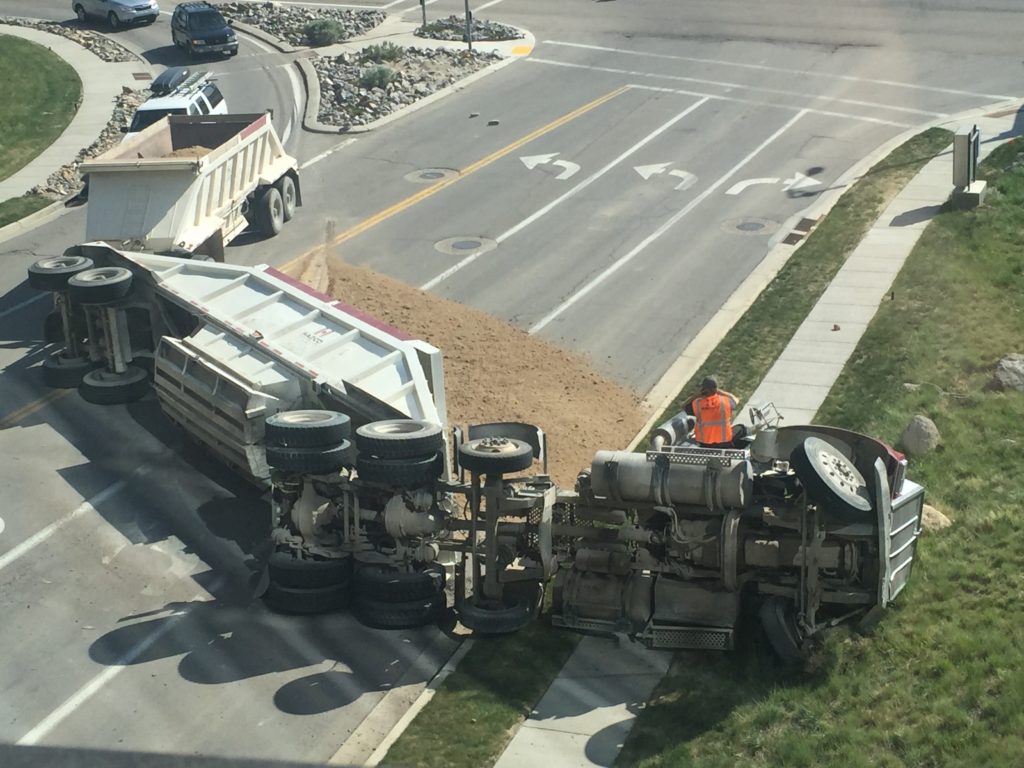Many store shelves have been empty with retailers selling out of essentials as people are legitimately concerned over the spread of COVID-19, commonly referred to as coronavirus. While many people are sheltering in place at home, our economy continues to rely on the trucking industry to transport goods wherever they need to go.
Some states have restricted non-emergency travel and imposed curfews. The safety and health of our communities are, of course, foremost on everyone’s minds. Yet, we still need things to get by. This pandemic has brought on a near shutdown of the American economy and, as I write this, Congress is hopefully finishing negotiations over the proposed stimulus package aimed at propping up businesses and protecting household’s savings accounts, as well as people just managing to get by.
Truck drivers and transportation companies play a vital role in keeping grocery stores stocked and allowing hospitals to replenish supplies. Most every item on a store shelf from produce to paper towels got there on a truck. It is essential that processional truck drivers are able to do their jobs. It won’t be the same as before, of course. Closed restaurants and truck stops will make it hard for drivers to find places to stop to rest or even wash their hands. This is where elected officials in every state need to step in and make sure there are adequate facilities available to drivers and that proper precautions are taken to prevent them from getting sick.
Although the transportation of essential good needs to continue as uninterrupted as possible, every effort should be taken by trucking companies and government to allow drivers the ability to rest when needed and when the law requires. For instance, federal and state laws prohibit trucks from parking on highway shoulders overnight. States that have taken action to limit business operation and travel, must make accommodations for drivers making cross-country trips that require overnight stops.
The Federal Motor Carrier Safety Administration (FMCSA) website contains information regarding emergency declarations, waivers, exemptions, and permits for drivers. The site continues information about which states have issued emergency declarations and some of the regulatory information associated with that. In addition to check with the FMCSA, drivers and transport companies should check each state’s website where they intend to travel to make sure they are following all local rules as well. FMCSA has also set up a toll free hotline for questions at 1-877-831-2250.
This pandemic is unprecedented. We will likely continue to deal with not only the health and medical emergency resulting from the spread of COVID-19, but also the economic ramifications, as well as continued restrictions on work and travel. As we move forward, we have to understand that we are all in this together. We should continue to do everything we can to try and keep people from getting sick, but we also need to keep I mind that although we are dealing with an extraordinary situation, we must continue to focus on taking precautions in our normal activity, including getting around from place to place when needed, and moving food and goods where they need to go.
Staying healthy from the threat of infections is not our only concern. With the spread of this virus a hospital stay resulting from a car crash could increase someone’s risk of coming into contact with a person seeking treatment for the virus. All the more reason for transportation companies and government to work together to make sure drivers are able to follow safety rules and get the rest they need as well as the facilities they need to be able to do their essential jobs properly.




